In our webshop you will find many different moulds, including moulds with symbols that have a deeper and spiritual meaning for many people. In this information article, we explain the meanings of the symbols in our ‘sacred symbols moulds’ en ‘Ankh mould’.
We would like to stress that we are not experts on spiritual or sacred symbolism.
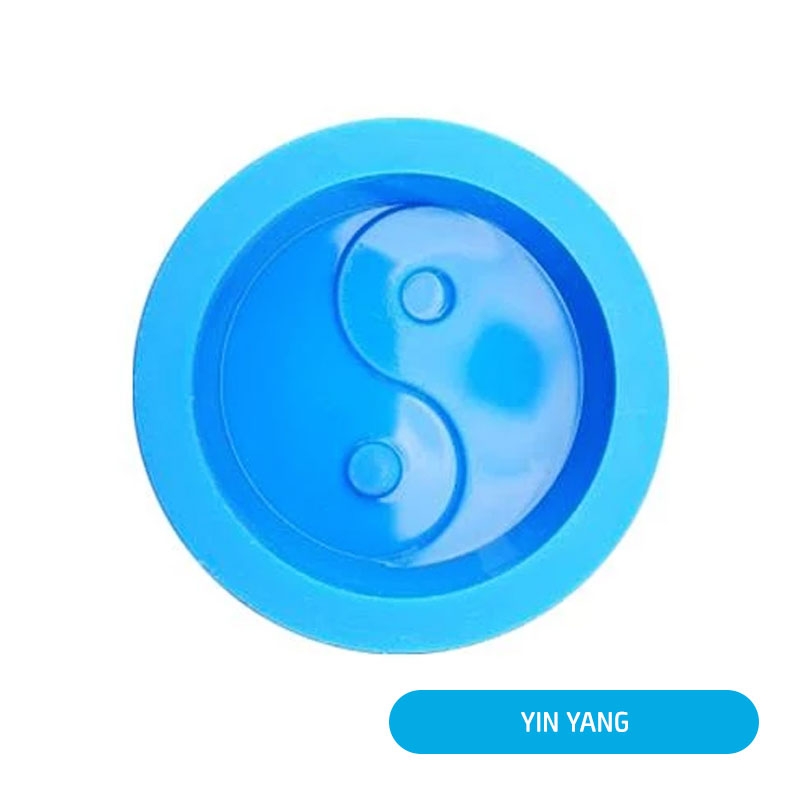
Origin: Chinese culture
The Chinese 'Ying and Yang' symbol might be the most famous symbol in this article. The symbol refers to two opposing principles or forces that permeate all aspects of life and the universe. The 'Ying Yang' symbol is an ancient Chinese representation of cosmic duality. Here, 'Yin' symbolises femininity (earth, cold, north, humidity) and 'Yang' masculinity (sky, heat, south, dryness). However, they are not mere opposites, but mainly values that complement each other.
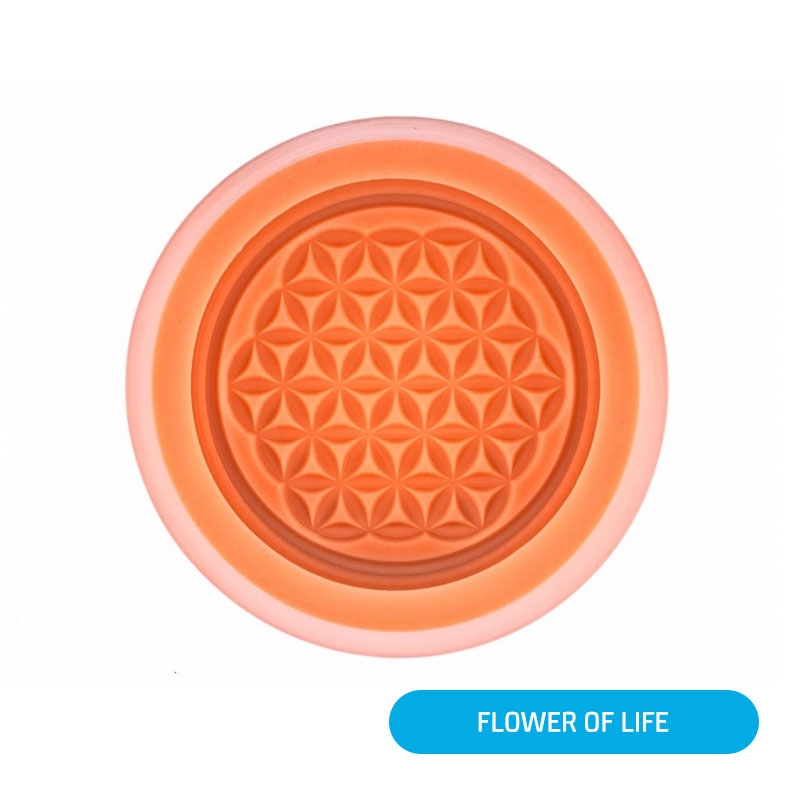
Origin: sacred geometry
The 'Flower of Life' is known as one of the most powerful symbols of nature in sacred geometry. The symbol consists of 19 circles surrounded by 2 large circles. You can find this symbol in, for example, ancient Egypt, Buddhist temples, ancient Israeli synagogues and works of art from the Middle East (as early as 1500 BC). The symbol as a whole represents connectedness, harmony, protection and creation.
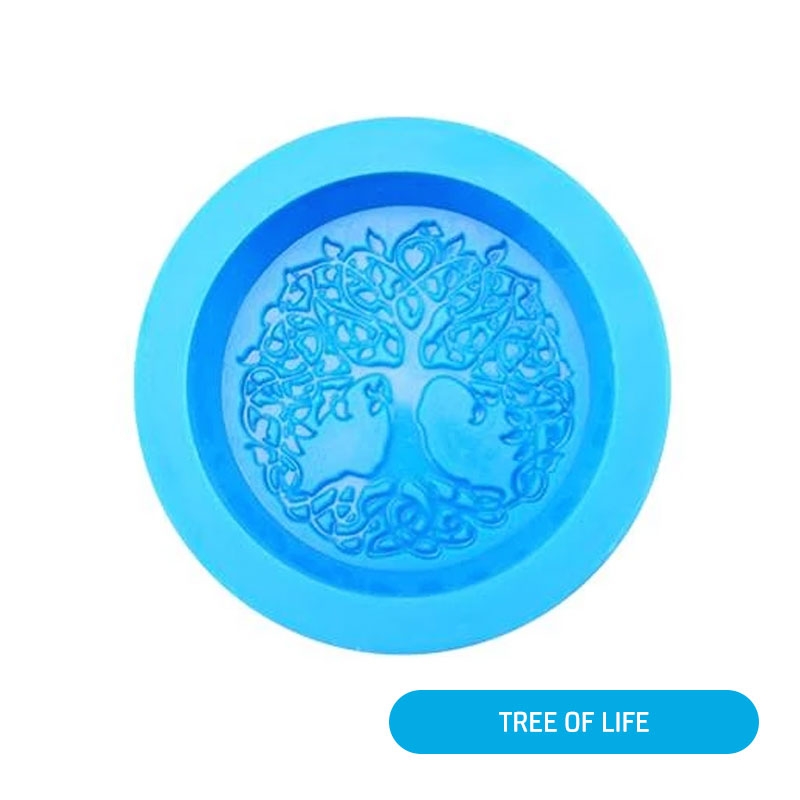
Origin: sacred geometry
The 'Tree of Life' is a very well-known symbol widely used in spiritual and mythological traditions around the world. The ancient symbol represents: life, protection, strength, wisdom, beauty and salvation.
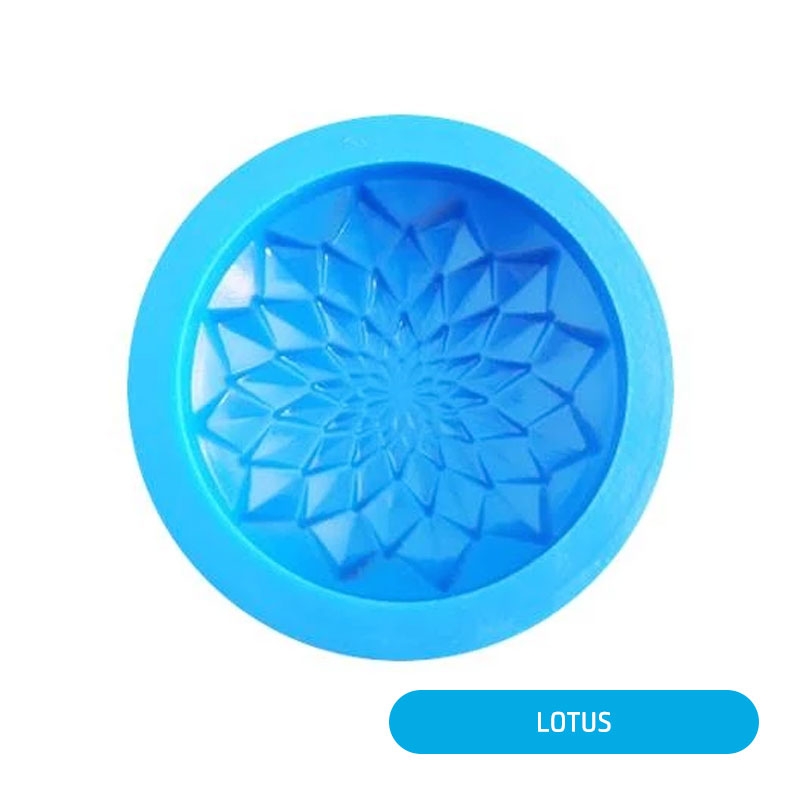
Origin: Hinduism/Buddhism
The lotus flower is an aquatic plant from the Nelumbonaceae family. You can find the flower in Indonesia, India, China, Thailand and Korea. In our contemporary society, the lotus flower mainly represents purity and cleanliness. In Hinduism, the familiar symbol represents rebirth, prosperity, beauty, fertility and eternity. It also signifies purity and divinity. Lotuses are also used to represent chakras, the energy centres. In Buddhism, the lotus flower symbolises purity of thought, speech and action.
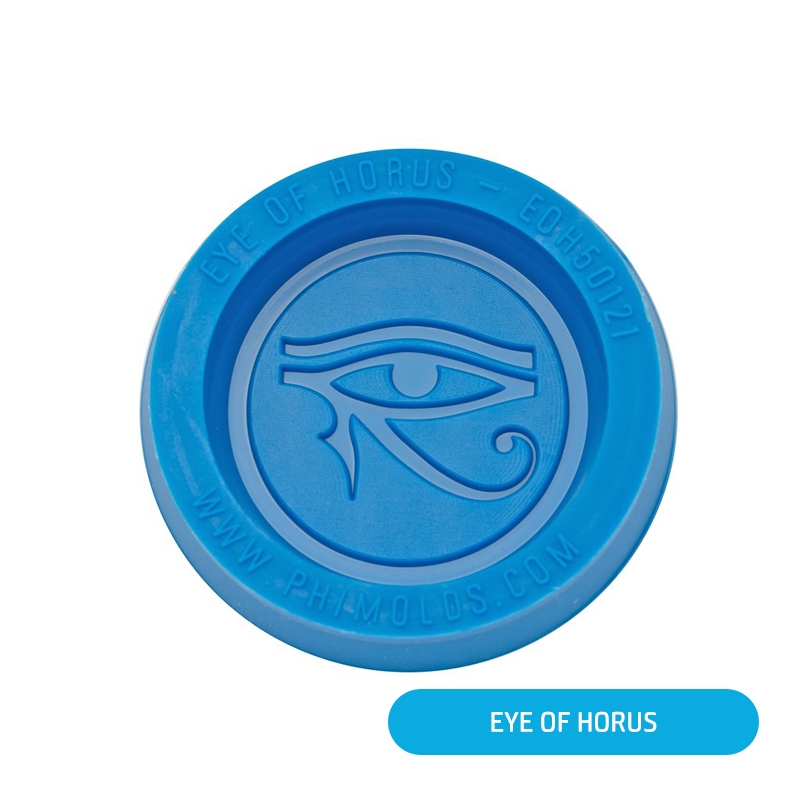
Origin: Egyptian mythology
The 'Eye of Horus' symbol comes from ancient Egyptian mythology and is also known as the oedjat eye or the 'all-seeing eye'. The symbol looks something like a human eye with eyebrows. You could think of the eye as 6 separate parts representing smelling, seeing, thinking, hearing, tasting and feeling. The symbol was/is also used as an amulet to protect against the evil eye. It symbolises truth and strength and it gives protection.
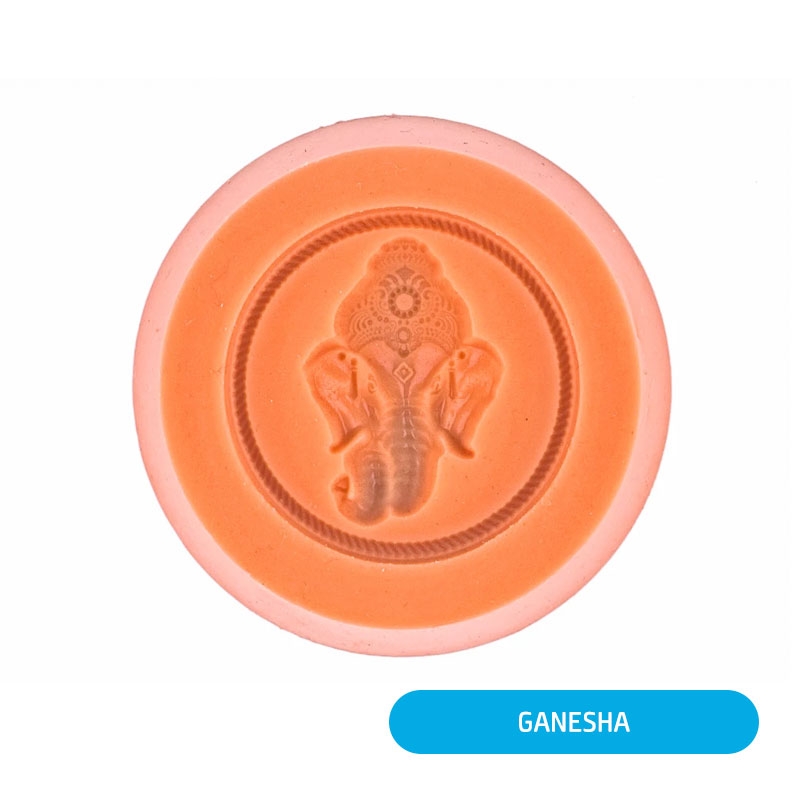
Origin: Hinduism
Ganesha (also called Ganesh) is the elephant-headed deva in the pantheon of Hinduism. He is the god of knowledge and wisdom and the patron saint of travellers. He removes obstacles. Ganesha is one of the best-known Hindu deities and is often depicted with a large bare belly, a rat at his feet and a characteristic elephant head. In the silicone mould, Ganesha is depicted as an elephant.
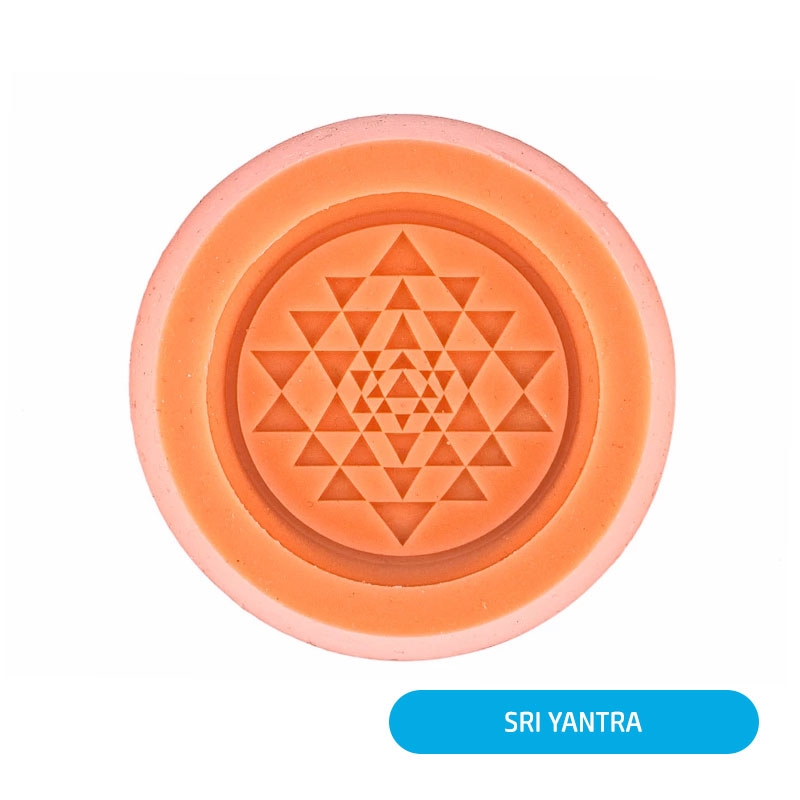
Origin: India
The 'Sri Yantra' (also known as 'Sri Chakra') symbol is one of the most powerful yantras in the world. A yantra is a hypnotic design frequently used in meditation. The 'Sri Yantra' symbol symbolises the creation of the universe. The symbol consists of an interlocking matrix of geometric figures including circles, triangles and floral patterns.
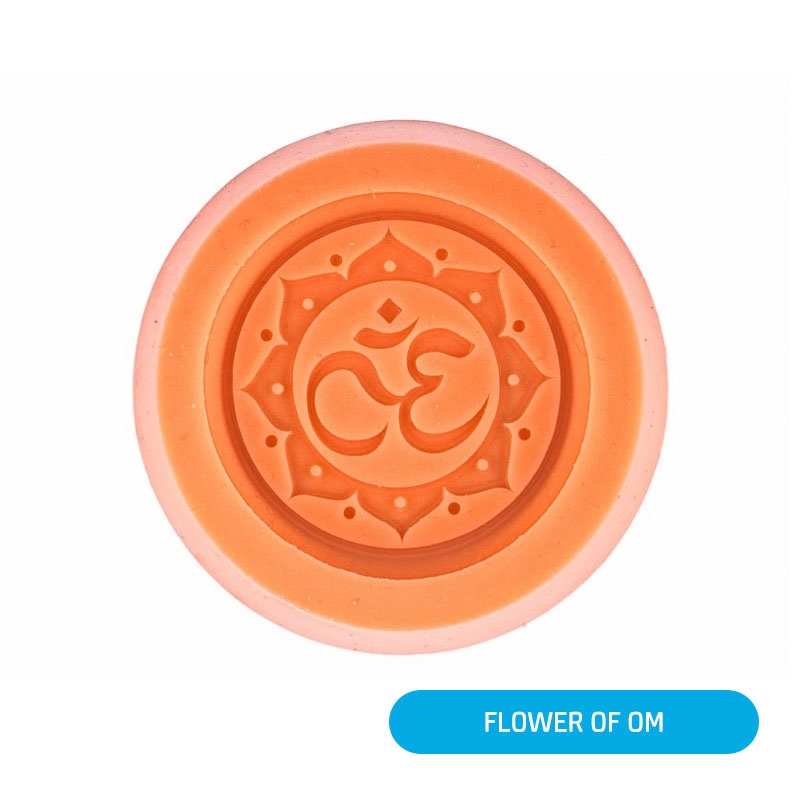
Origin: Hinduism/Buddhism (Sanskrit)
There are many different stories about the Ohm sign. Ohm is said to be the first sound of creation, the breath that accompanies the word. Also, the Ohm sign is said to stand for a sacred syllable from Hinduism and Buddhism, especially from prayers and mantras. The Ohm sign represents eternity, infinity and the universe. In this mould, the Ohm sign is surrounded by a lotus, symbolising life and beauty.
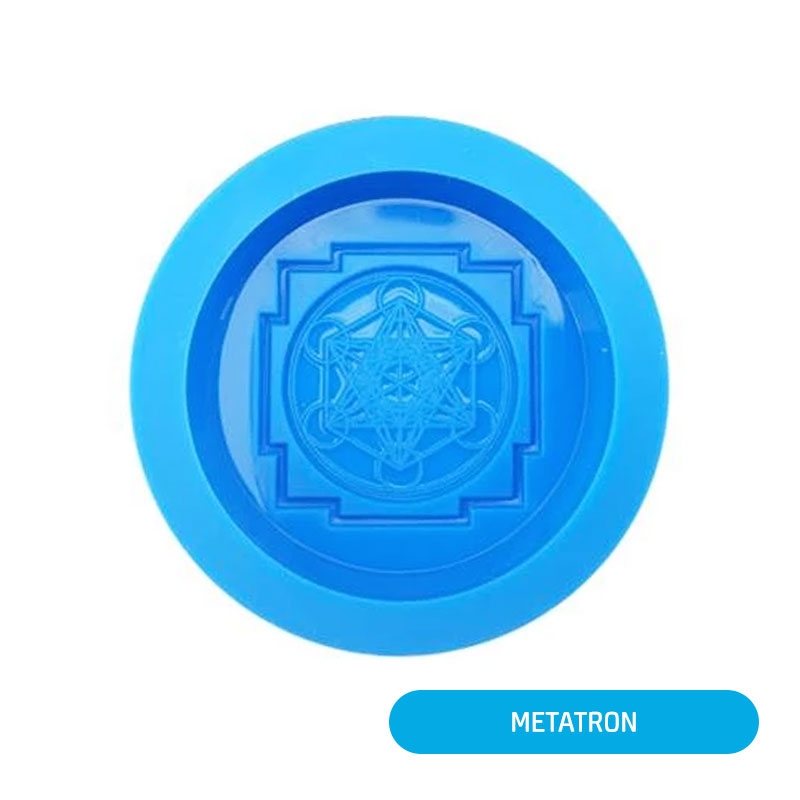
Origin: Jewish-Islamic and Christian mystical mythology
Metatron or Mattatron is an angel in Jewish-Islamic and Christian mystical mythology mentioned in a few short passages in the Aggadah and in mystical Kabbalistic texts within rabbinic literature.
Here you can find all 15 related articles on this topic. Mis je informatie om aan de slag te gaan met jouw klus? Neem dan contact met ons op.
Do you have a specific question? Call one of our specialists for free advice +3185 0220090
